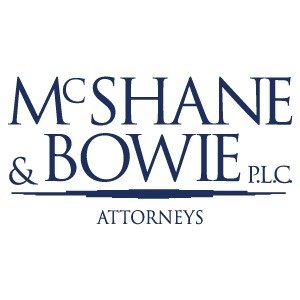Best Foreclosure Lawyers in Grand Rapids
Share your needs with us, get contacted by law firms.
Free. Takes 2 min.
Free Guide to Hiring a Real Estate Lawyer
List of the best lawyers in Grand Rapids, United States
About Foreclosure Law in Grand Rapids, United States:
Foreclosure is a legal process through which a lender attempts to recover the amount owed on a defaulted loan by taking ownership of and selling the mortgaged property. In Grand Rapids, Michigan, like the rest of the state, lenders may use either judicial or non-judicial foreclosure, but most choose the non-judicial route. Michigan law sets forth specific procedures that must be followed for either type of foreclosure, it's therefore crucial to understand these proceedings.
Why You May Need a Lawyer:
In a stressful financial situation like a foreclosure, a foreclosure lawyer can offer invaluable advice and options. They can help you understand your rights, navigate the foreclosure process, propose alternatives to foreclosure, such as loan modifications, short sales, or deeds in lieu of foreclosure. A lawyer can also represent you during negotiations with the lender or in court if a judicial foreclosure is initiated.
Local Laws Overview:
In Grand Rapids, and generally in Michigan, the non-judicial foreclosure process is preferred due to its expedience. This means that the lender can bypass the court system, as long as the mortgage contract includes a power of sale clause. There are, however, strict notification and timeline requirements that the lender must follow, including a notice of default and a notice of sale. Borrowers also have a six-month redemption period following the foreclosure sale to reclaim their property.
Frequently Asked Questions:
1. How long does the foreclosure process take in Grand Rapids?
The timeline can vary, but in general, the foreclosure process in Michigan can take between 6 to 12 months depending on the type of foreclosure process being used and the borrower's responsiveness.
2. Can I stop the foreclosure process once it has started?
Yes, there are several methods to stop foreclosure such as reinstating the loan, arranging a repayment plan with the lender, or filing for bankruptcy. You should seek legal advice to understand these options.
3. What is the Redemption Period?
The redemption period is a timeframe after the foreclosure sale during which the borrower can reclaim their property. They must pay the full amount of the foreclosure sale, plus interest and other allowed costs.
4. Can I avoid foreclosure if I have filed for bankruptcy?
Filing for bankruptcy can temporarily halt the foreclosure process. Chapter 13 bankruptcy in particular, may help you avoid foreclosure altogether.
5. Can a foreclosure lawyer help me keep my home?
A foreclosure attorney can often help you to restructure your loan, delay or stop the foreclosure process, allowing you to stay in your home. It's critical to seek legal help as early as possible.
Additional Resources:
The Michigan State Housing Development Authority (MSHDA) and the Department of Housing and Urban Development (HUD) provide valuable resources for homeowners facing foreclosure. These entities offer services, advice, and resources to help understand the process and your options.
Next Steps:
If you are facing foreclosure in Grand Rapids, it's recommended to seek legal advice as soon as possible. A foreclosure attorney can help clarify your rights, discuss potential strategies, and guide you through the process. Additionally, you may want to consult with a financial counselor to help manage your finances and prevent future foreclosure issues.
Lawzana helps you find the best lawyers and law firms in Grand Rapids through a curated and pre-screened list of qualified legal professionals. Our platform offers rankings and detailed profiles of attorneys and law firms, allowing you to compare based on practice areas, including Foreclosure, experience, and client feedback.
Each profile includes a description of the firm's areas of practice, client reviews, team members and partners, year of establishment, spoken languages, office locations, contact information, social media presence, and any published articles or resources. Most firms on our platform speak English and are experienced in both local and international legal matters.
Get a quote from top-rated law firms in Grand Rapids, United States — quickly, securely, and without unnecessary hassle.
Disclaimer:
The information provided on this page is for general informational purposes only and does not constitute legal advice. While we strive to ensure the accuracy and relevance of the content, legal information may change over time, and interpretations of the law can vary. You should always consult with a qualified legal professional for advice specific to your situation.
We disclaim all liability for actions taken or not taken based on the content of this page. If you believe any information is incorrect or outdated, please contact us, and we will review and update it where appropriate.









